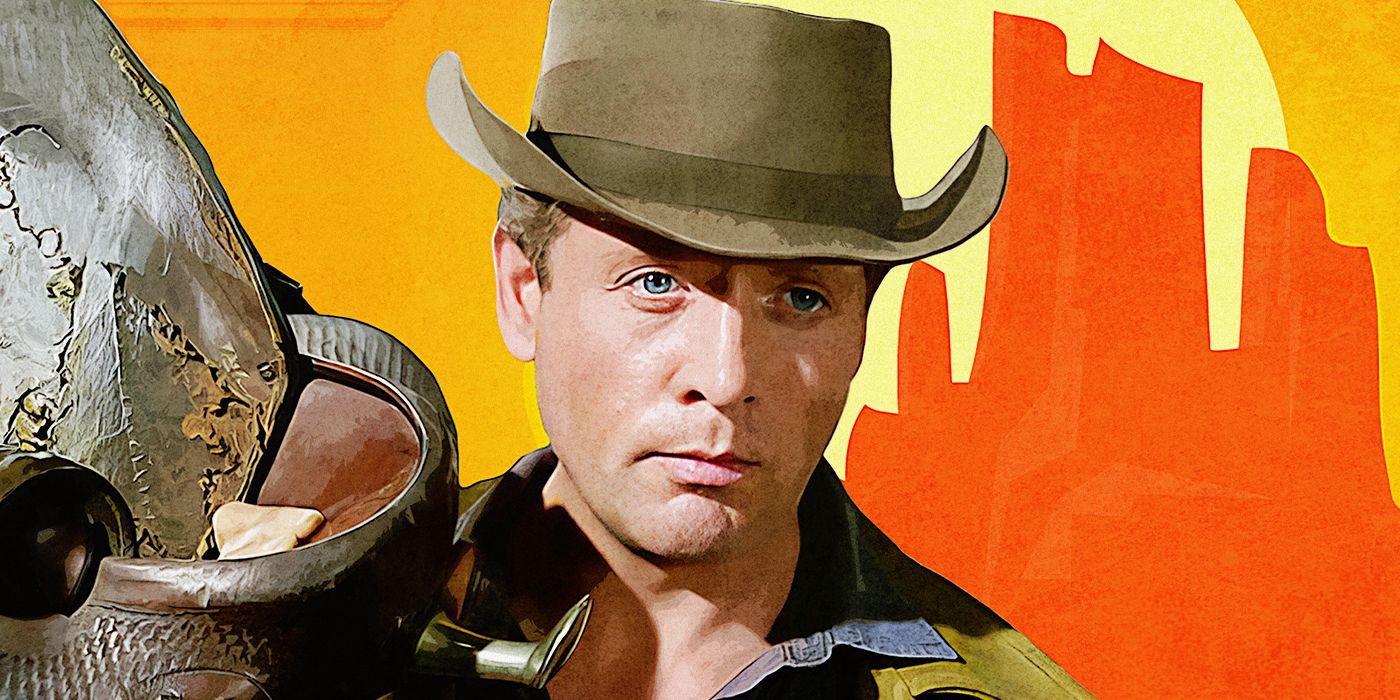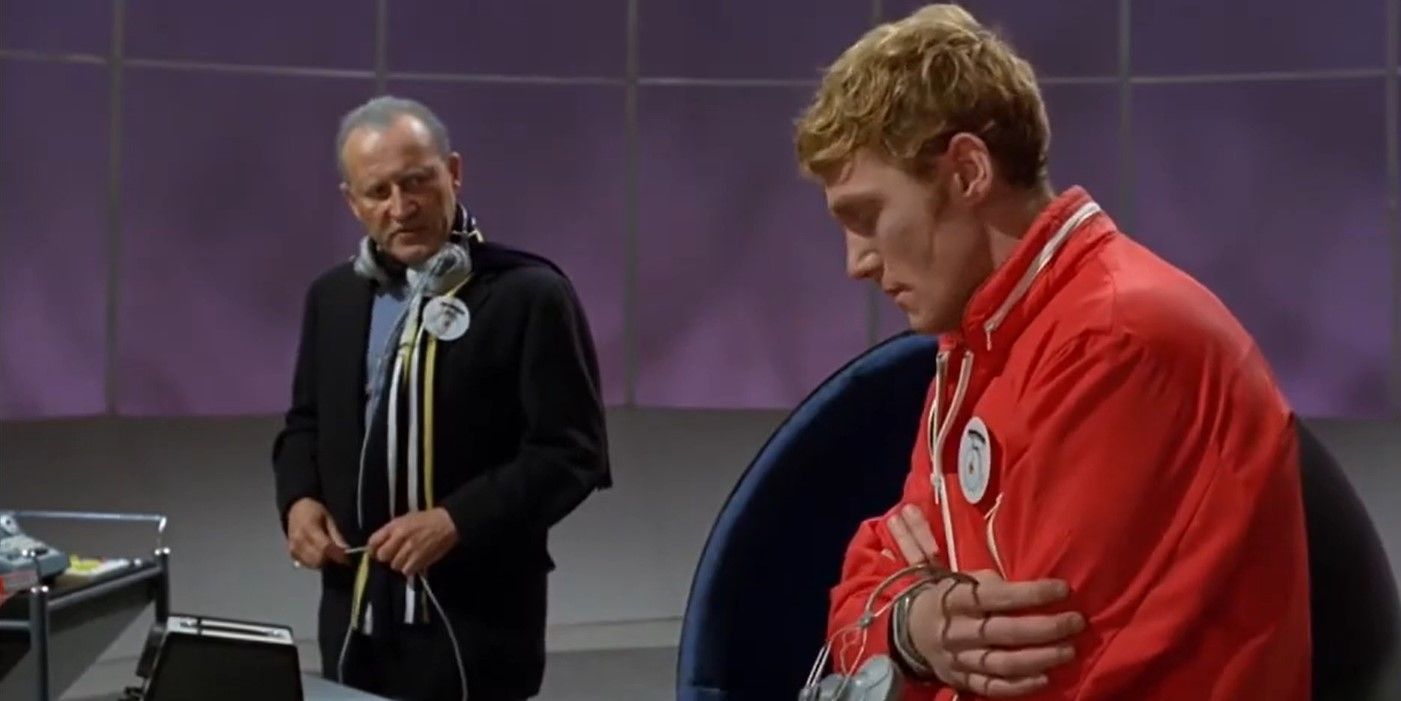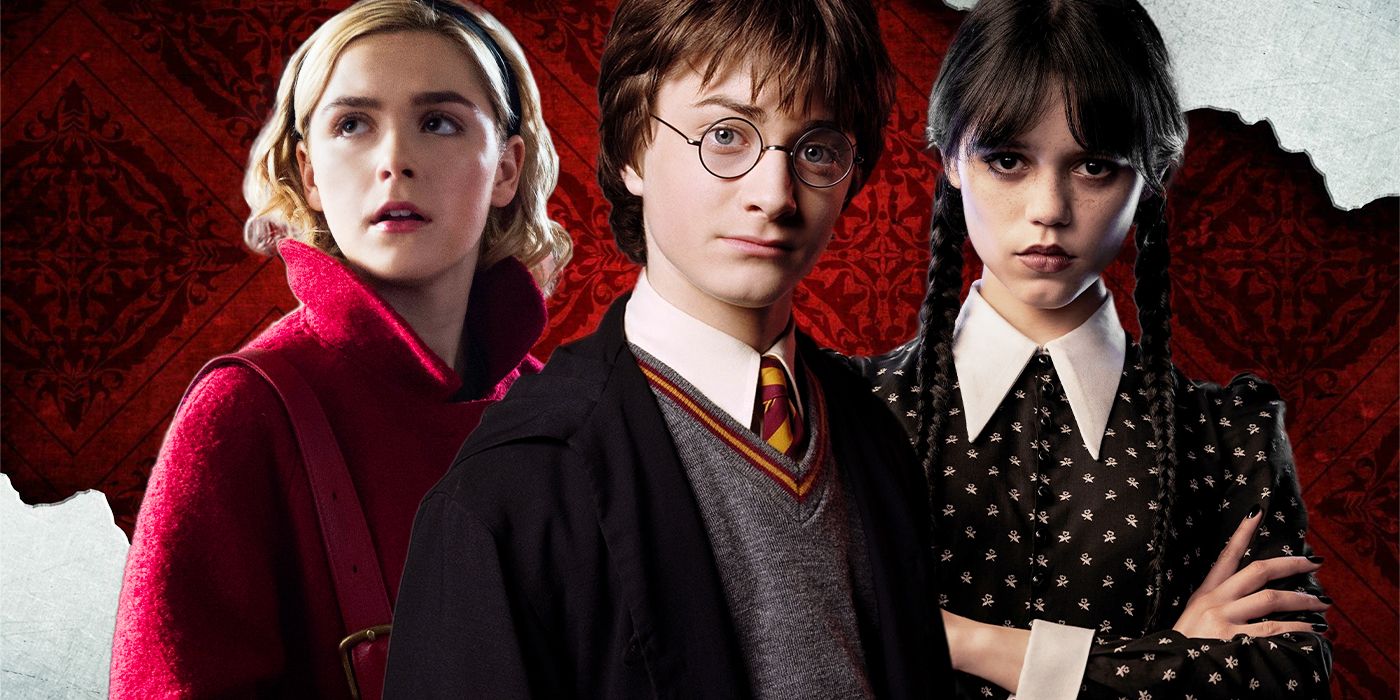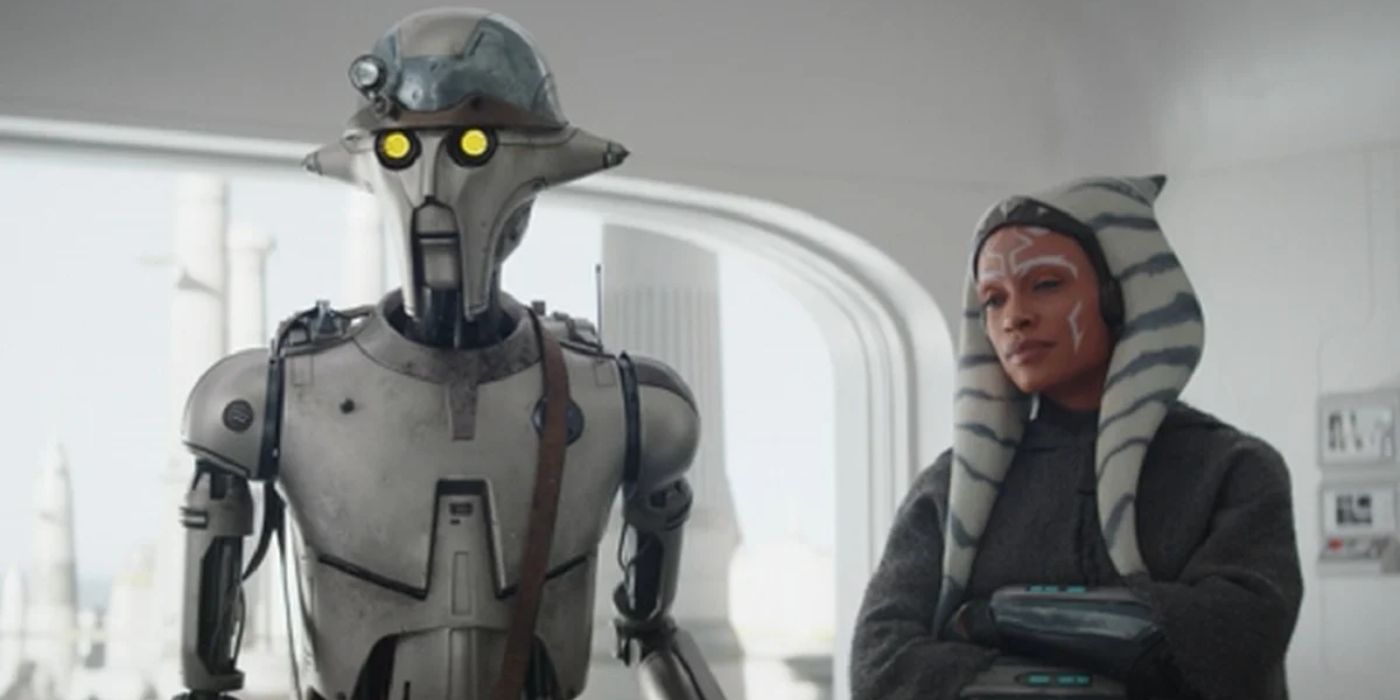The Big Picture
- CBS banned an episode of The Prisoner due to its anti-war sentiments, fearing it would be too provocative.
- The Western town of Harmony in the episode represents a corrupt and dystopian society, adding to the themes of government resistance and a sharp commentary on the war in Vietnam.
- The show’s episode, “Living in Harmony,” is a psychologically thrilling escape that explores self-reliance, corruption, and the consequences of blurred realities.
While banning television episodes is a rare occurrence, there are many complex reasons why networks and censors might work to shield viewers from the imagination of showrunners. Between content issues or cultural and political sensitivities, the subject can sometimes induce inflammatory conversations that don’t align with political ambitions, like the British sci-fi series, The Prisoner, which upset U.S. censors in the late ’60s. The first season of the ITV series premiered in the United States in 1968 – a year after its debut in the United Kingdom. But one episode, titled most pleasantly “Living in Harmony,” did not air in the U.S. due to its contentious nature.
In the episode directed by David Tomblin, a non-conforming civilian named Number Six (McGoohan) is put through government experimentation in an abandoned Western town, where he is psychologically tormented. Despite this, he refuses to conform to the demands of the conductor of the experiment. Number Six’s refusal to use a gun left people uneasy about airing the episode, given the political context surrounding the Vietnam War and U.S. citizens protesting the end of the war and the end of military drafts. Why was Number Six considered threatening enough to the British government to warrant his kidnapping, drugging, and torture? And what made this episode of The Prisoner so controversial for U.S. audiences?
The Prisoner
After he resigns, a secret agent is abducted and taken to what looks like an idyllic village but is really a bizarre prison. His warders demand information. He gives them nothing; he only tries to escape.
- Release Date
- October 1, 1967
- Cast
- Patrick McGoohan
- Seasons
- 1
After making its debut in the U.S. in 1968, a year after its British and worldwide premiere, CBS picked up The Prisoner for its summer programming. Looking to air all of its 17 episodes for American audiences, there was one episode that the American network chose not to broadcast because of political dialogues. The network at the time believed its main character in Number Six’s defiance of the British government implied an anti-war sentiment. Because he represented insurrection and anti-war sentiments, Number Six became linked to those ideas. He quits as a sheriff, resigned his gun and, upon arriving in Harmony’s town, does not change his mind either. This representation of the Western authoritative figure, a sheriff, can be likened to a police officer or a military leader. His decline to be sheriff of the town of Harmony enrages The Judge, played by David Bauer. The Judge is the conductor of an experiment to make Number Six less resistant to authority. This can be interpreted as an anti-war sentiment due to Number Six’s refusal to carry his gun and continue his authoritative position as sheriff. Even though he doesn’t carry a gun, he has no issues retaliating against people, which further emphasizes a message to rebel against authority and refuse to fight in the military. Number Six’s first interaction with The Kid (played by Alexis Kanner) is violent, and he punches him.
After being thrown in jail for attacking The Kid, a woman from the saloon, Kathy (Valerie French), discreetly gets the cell key to Number Six, so he can escape, but they wind up getting caught. Thus, The Judge gives Number Six an ultimatum between Kathy’s freedom and his own. Kathy and Number Six’s jailbreak can be seen as anti-war sentiments due to the rebellious nature that makes them think they stand above the law. After being offered between two undesirable choices, Number Six accepts the offer to be the town of Harmony’s sheriff, but he still refuses to carry a gun. In contrast to Number Six, The Kid is irresponsible with guns. He swings them around as if they were toys, shooting his shot glass when Number Six goes to have a drink. The Kid’s recklessness towards firearms indicates underlying messages surrounding the dangers of drafting people without proper training or testing. All of these aspects indicated that the themes surrounding this episode were anti-war sentiments and threatened any allegiance to American ideals, hence the network felt this episode was too provocative of a statement to air. Not to mention, The Prisoner and its episodes were pre-empted amid a rather volatile time in America following the assassination of President John F. Kennedy.
The Western Town of Harmony Represents a Corrupt Dystopian Society
Anti-war statements embedded in The Prisoner episode, “Living in Harmony” have become theorized by critics based on the dystopian government created in the town of Harmony that Number Six resists. There are hints from the beginning that indicate Number Six was in a constructed government environment. When he arrives in Harmony holding a saddle, Mexican Sam (Larry Taylor), welcomes Number Six to Harmony. He tells Number Six that he should go to the saloon for a drink, even though he is itching to leave the town. However, Mexican Sam remains insistent that he stays and visits the saloon because he works for the British government, which must ensure that Number Six meets the townspeople. This encounter with Mexican Sam resembles the corruption and deception of the British government, a statement that the U.S. regarded as anti-war sentiments in speculating and questioning the integrity of the government.
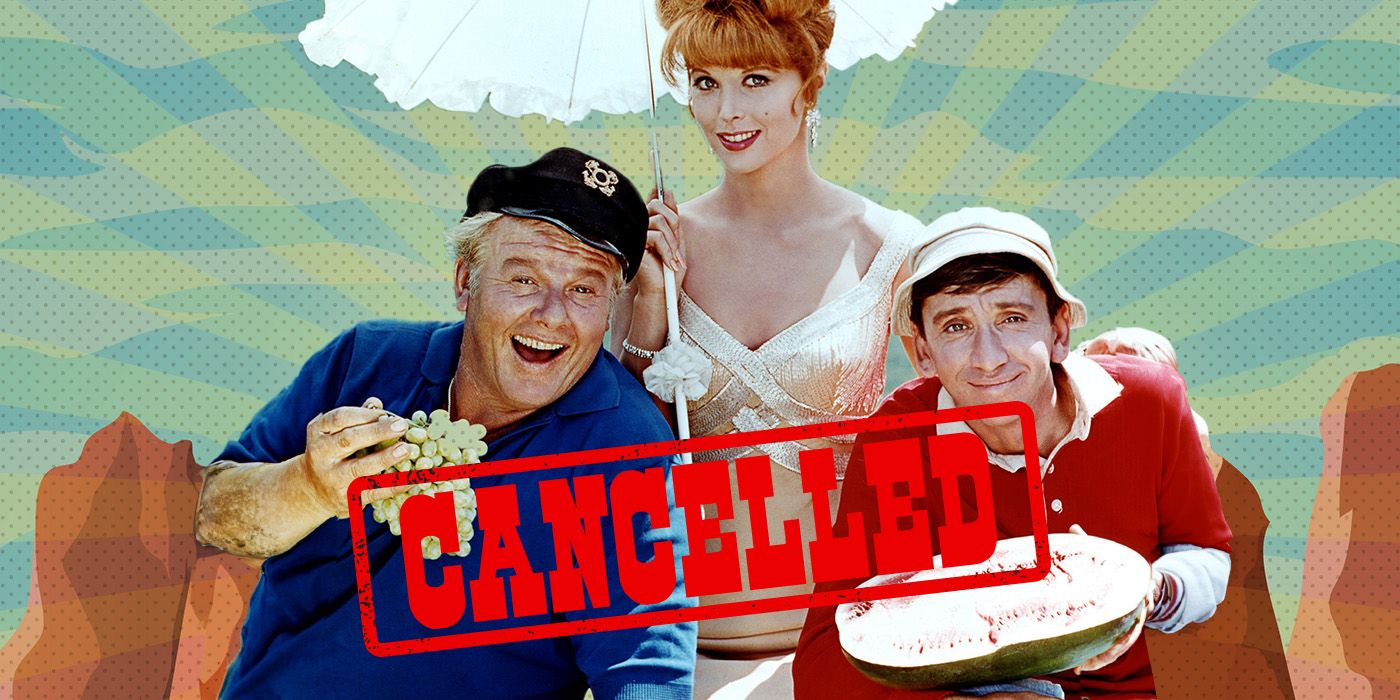
‘Gilligan’s Island’ Was Cancelled to Make Room for This Classic Western Series
Man, who asked for another Western?
Upon walking into the saloon, everyone — including the music — stops and turns to face Number Six. Kathy introduces herself and offers him a free drink because regulars always get free drinks. Confused, Number Six stares at the poured shot and says that he is not a regular. The Kid shoots the poured shot, which angers Number Six. After he punches The Kid, The Judge says that he should not have done that. All of these moments show that there is something strange about this town and the people in it, offering the audience clues to figure things out along the way to Number Six. Number Six’s intuition, despite being psychologically manipulated, can be argued as an anti-war statement through his ability to foresee the danger within the government’s underlying motivations.
What Does ‘The Prisoner’ Say About Violence?
This episode of The Prisoner is beyond its time as a creative political thriller, whilst adding rural Western aesthetics. Because of its dark, psychological themes and commentary, critics state the episode has reached another level of cult status thanks to its complexities. The discussion was on taboo themes for its time, regarding government resistance and psychological manipulation. The episode, “Living in Harmony” also emphasizes violence, but it is unclear what exactly the show’s message in it is. The violence that The Kid portrays poses as a juxtaposition to Number Six, and when he murders Kathy outside the fantasy, it is unclear why this happens. Perhaps a portrayal of necessary violence by soldiers is created through excessive psychological training. And their ability to harm innocent people when they cannot separate their services in the military and their life back at home.
This episode of The Prisoner is a psychologically thrilling Western-themed TV show that has become a cult classic. The history surrounding the broadcasting of “Living in Harmony” makes it even more exciting to watch since it faced controversies so strong, that the U.S. decided not to air it during the show’s debut. But it also brings forward important themes surrounding self-reliance, corruption, and the violence that comes from blurred lines of reality and coercion. By touching on themes of self-reliance, corruption, and the consequences of blurred realities, the series encourages viewers to contemplate the complexities of psychological manipulation. Through its unique aesthetic blend of the Western genre and a futuristic dystopia, The Prisoner continues to captivate audiences across the board.
You can watch this episode of The Prisoner on Apple TV.
Watch on Apple TV+

